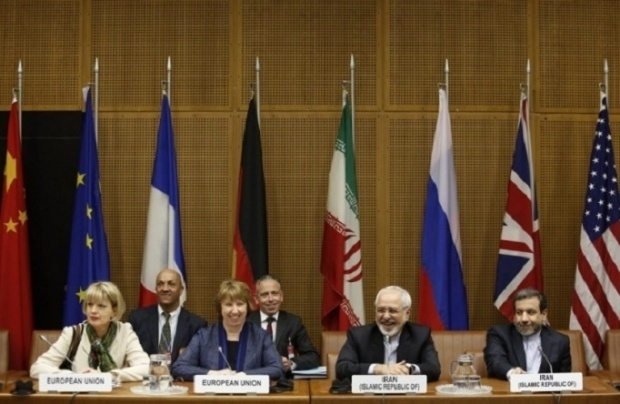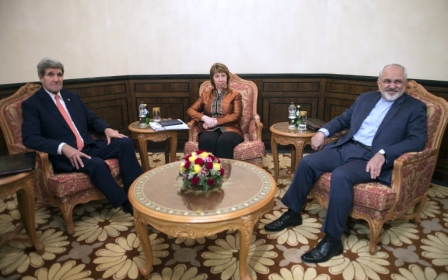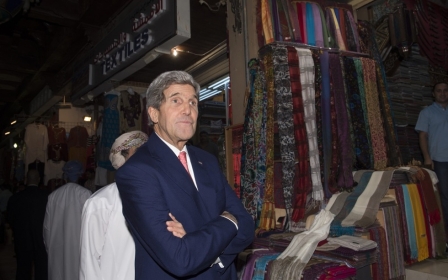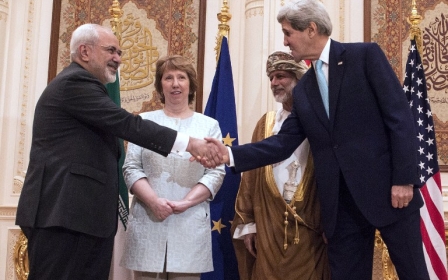ANALYSIS: Reaching a nuclear deal with Iran

WASHINGTON, DC -The Vienna talks will come down to the wire, much like the last, as negotiators use every minute possible to come up with something new.
If they don’t, very simply, diplomats from the negotiating teams in the United States, China, Europe and Iran fear the public will view the talks as a failure. And failure is dangerous.
It could push Iran to the brink of war – as it was before last November’s temporary accord, when Israel and the United States were openly exploring their military “options.”
This leaves negotiators with two realistic options for 24 November; the announcement of several new points which will form part of the permanent deal or the announcement of the permanent deal itself, in full.
The deal itself, according to negotiators, including Iran’s deputy foreign minister, Abbas Araghchi, is 95 percent complete.
Painstaking technical and political talks have consumed the hours of both Iranian negotiators and those of the P5+1 (the five permanent members of the UN Security Council plus Germany) since they reached the ground breaking temporary agreement in Geneva, November 2013.
But without a big bang since then, the mood has reverted back to what it was before that temporary deal – negative, with most Western media and pundits predicting “probable failure.”
Hard-line pressure cooker
If the P5+1 and Iran extend the talks, the greatest obstacle to any deal, say diplomats and analysts, is the US Congress. And they have time on their side.
After 24 November, they only have about two weeks to reach a deal for months. After that, Thanksgiving, Christmas and New Year vacations will shut down the Washington political spheres, until the start of January.
Then the GOP takes Congress. And members of Congress, including Democratic Senator, Bob Menendez, chairman of the senate foreign relations committee, have vowed to introduce legislation to “tighten” US sanctions if a deal is not done by 24 November.
That would be a direct breach of the terms of the temporary agreement - officially known as the Joint Plan of Action or the JPA. The bill also pledges military support to Israel if it bombs Iran.
Meanwhile, Senator Lindsey Graham and the incoming chairman, Bob Corker, plan to introduce another piece of legislation that would give Congress the final approval of any deal. Graham asked the Senate on Thursday to schedule the vote.
If the bills pass and talks run off the rails, it will kill what is seen as Obama’s legacy foreign policy achievement, one that would set up the 2016 democratic presidential nominee, particularly if it is Hillary Clinton. There is a lot of lobbying going on too.
The prospect of Congress railroading the process is so severe, P5+1 diplomatic missions in DC, including Germany, are trying to appeal to congressional members to hold off.
Meanwhile, the pro-Israel foundation, For the Defence of Democracies will brief the Senate - four days before the deal deadline.
And the Republican dominated house foreign affairs committee will hold two hearings on the so-called “risks” of a bad deal.
As for Tehran, Rouhani is encircled. Hardliners, especially those in the conservative dominated parliament, have dug in.
They have passed a motion to summon Iran’s foreign minister, Mohammad Javad Zarif, claiming he is giving up the country’s nuclear rights.
Privately, the MP’s are angry that parliament has been kept out of highly secret talks. But there is a big difference between Iran’s hardliners and those in the US.
In Tehran, most can’t sabotage a deal even if they wanted to, and those with the power – i.e. the supreme leader, have already given talks and a final deal the green light.
Back Channels
On the world stage, diplomats from Muscat to Moscow are turning the screws to get results. Oman has played a curious role - seemingly passive, but important.
It hosted secret direct talks in March 2013 between Iran and the US and has acted as a go-between, delivering messages between Washington and Tehran.
And just 9 November, European Union Envoy, Catherine Ashton, US Secretary of State, John Kerry and Zarif met in Muscat for more talks, while two weeks later, Omani Foreign Minister, Youssef Bin Alavi made a snap visit to Tehran to see Rouhani and his foreign minister.
Then there are the Russians - who play a crucial role in any deal with Iran.
John Kerry and Russian Foreign Minister, Sergei Lavrov met before the Asia-Pacific Economic Co-operation forum (APEC) in Beijing in early November.
Three days later, Russia and Iran signed a long-awaited deal, in which Russia would build new reactors at Bushehr, a Shah-era Russian-built power station.
The deal, it’s thought will facilitate a compromise on the central issue of the number of uranium-enrichment centrifuges Iran can keep spinning.
With a reduced number and therefore, not able to produce enough enriched uranium for its research and energy needs, Iran will agree to send its low enriched uranium to Russia to convert to fuel rods.
Russia will then send them back to Iran, where Tehran can use them for non-weapons related purposes. Russia in return, gets a lucrative contract and a further foothold in Iran’s energy sector.
What’s on the table
Nothing is certain until it is announced by one of the negotiators, officially. What we do know are parameters. Iran has 9,400 spinning centrifuges. P5+1 negotiators want to limit that number to around half.
The head of Iran's parliamentary nuclear committee, Ebrahim Karkhaneh, told Iran’s Tasnim news agency (which is affiliated with the Revolutionary Guard), that the US has also proposed a “redesign” of the heavy water Arak reactor, which has not yet come online.
Karkhane accused the US of trying to turn Iran’s nuclear program into nothing more than “decoration.”
The P5+1 also want the International Atomic Energy Agency to have a permanent presence - and access to all of Iran’s nuclear sites.
Iran wants all sanctions removed, sooner than later. But the timeline and specifications are believed to be a sticking point, in that Iran wants UN sanctions removed immediately, while the P5+1 wants them removed as a later step.
Admiral Ali Shamkhani, the head of Iran’s powerful Supreme National Security Council – the body tasked with making Iran’s most important foreign policy decisions, emphasised on Sunday, that need.
“In case the other side takes a logical, non-political approach on the basis of realities, reaching an agreement in the nuclear talks will be possible immediately,” Shamkhani said.
Buying and selling
If they can’t reach a deal, Rouhani can sell failure to hardliners. But he can’t sell failure to the majority of the population who support him.
After all, he is an elected official who faces a crucial consensus in March 2016 – Parliament elections, where his supporters will try to wrest back control from conservatives, in order to enact domestic reforms.
He needs a deal, in part to do that. Also, because the price of oil has slumped. That, has cut into Iran’s ability to stay afloat, as high oil prices, hovering above $100 per barrel, offset the economic effect of sanctions for a long time.
Sanctions already limit Iranian oil sales to one million barrels per day, now prices have dropped below $80 and put a hole in the coming Iranian budget.
According to Iran’s oil minister and at least one of Rouhani’s vice presidents, the government will now have to dip into the National Development Fund to fill that hole – a fund used for key infrastructure projects.
And that weakens the government’s position in Tehran in its fight against hardliners, much like delaying a deal weakens the White House in the US.
It only favours hardliners on both sides, who want to sabotage peace, for what could be, the greater cost of conflict.
New MEE newsletter: Jerusalem Dispatch
Sign up to get the latest insights and analysis on Israel-Palestine, alongside Turkey Unpacked and other MEE newsletters
Middle East Eye delivers independent and unrivalled coverage and analysis of the Middle East, North Africa and beyond. To learn more about republishing this content and the associated fees, please fill out this form. More about MEE can be found here.




